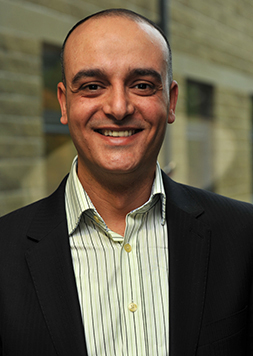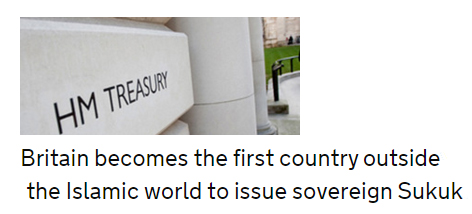New Finance Masters first to explore Islamic Economics

Mon, 25 Jan 2016 12:43:00 GMT
The new MSc in Islamic Finance and Economics offers a broader qualification much sought by employers in Islamic banks and finance houses
 ISLAMIC banking – fundamentally different to the conventional Western model – is increasing in global importance. Muslims and non-Muslims alike can gain a career boost from specialist knowledge and qualifications in the subject, so the University of Huddersfield is offering a new postgraduate course.
ISLAMIC banking – fundamentally different to the conventional Western model – is increasing in global importance. Muslims and non-Muslims alike can gain a career boost from specialist knowledge and qualifications in the subject, so the University of Huddersfield is offering a new postgraduate course.
The one-year MSc degree in Islamic Finance and Economics begins in September 2016, and is aimed at students – from the UK and overseas – who want to build on their undergraduate qualifications in areas such as accountancy, business, economics or finance.
The course is led by Hussein Abdou (pictured), who is Professor of Finance and Banking in the University’s Business School. Islamic finance is one of his areas of expertise and he says that it is growing in global penetration – as confirmed by recent IMF findings. In 2014, the UK Government became the first in the West to issue sukuks, the Islamic equivalent of bonds.
These are strictly asset-based, said Professor Abdou, and therefore can aid infrastructure growth, benefitting the economy as a whole. He contends that Islamic banking practice – which follows Sharia law by prohibiting the payment of interest on the Western model – could help with a solution to the economic crises that beset conventional economies.
“The growth in significance and scope of the Islamic Finance industry is now widely recognised, not only by those in the Islamic sector but also by those working within the wider, more generic banking sector,” said Professor Abdou. “This significance is expected to develop further as the emphasis on ethical banking continues grow within personal and commercial banking sectors. It is against this background that many academic institutions are developing taught and research programmes to satisfy the banking sectors need for personnel who are knowledgeable about Islamic banking and how to develop relevant products that comply with Islamic Shari'ah principles and legal requirements within a variety of jurisdictions.
 “The University of Huddersfield’s MSc Islamic Finance and Economics Programme is the first of its kind in the UK that considers the Islamic Economic side as well as the financial side. None of the current MSc Islamic studies programmes in the UK consider the economic side which emphasizes the uniqueness of this programme,” added Professor Abdou.
“The University of Huddersfield’s MSc Islamic Finance and Economics Programme is the first of its kind in the UK that considers the Islamic Economic side as well as the financial side. None of the current MSc Islamic studies programmes in the UK consider the economic side which emphasizes the uniqueness of this programme,” added Professor Abdou.
Students who gain the new University of Huddersfield MSc will be amply qualified to gain employment in Islamic banks and finance houses, but they would also be well-positioned to work in the wider sector, said Professor Abdou, especially if international banks begin to open increasing numbers of Islamic “windows” alongside their conventional services.
A number of guest speakers from the banking and finance sector will contribute to the MSc course, which is distinctive for its coverage of both Islamic finance and wider economic issues, said Professor Abdou.
He has already run modules covering Islamic finance and they have attracted a significant number of non-Muslim students. It is intended that the new course – with eight taught modules plus a dissertation – will lead to a greater understanding of the international development of Islamic finance. There is also an emphasis on vocationally-relevant subject matter and skills development, leading to enhanced employability.







